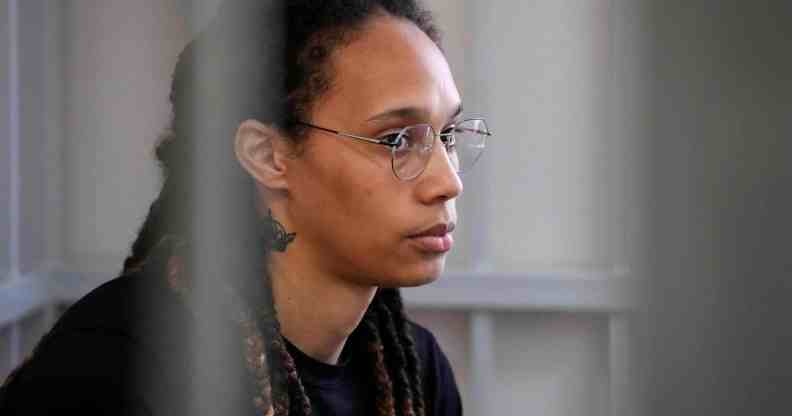Brittney Griner faces violence, bigotry and threat of torture in Russian penal colony, experts say

US WNBA basketball superstar Brittney Griner, in a Russian prison cell. (ALEXANDER ZEMLIANICHENKO/POOL/AFP via Getty Images)
US basketball star Brittney Griner faces a system “underpinned by violence” in a Russian penal colony.
The 32-year-old was sentenced in August to nine years in a Russian penal colony after pleading guilty to drug charges. She was reportedly found at an airport with vape cartridges containing cannabis oil.
At her sentencing, Griner told the court she had made “an honest mistake” and she “never meant to break any laws”.
In early November, Griner was moved from a detention centre to the IK-2 penal colony in Yavas, Mordovia – some 480 kilometres southeast of Moscow.
University of Helsinki sociologist Olga Zeveleva told The Guardian prisons in the area “are notoriously terrible, even by Russian standards”.
“It is a place any prisoner wants to avoid”.
University of Oxford professor Judith Pallot, who specialises in the human geography of Russia and has visited IK-2, also told The Guardian it is “very sterile and sad”.
“The Russian prison system isn’t interested in rehabilitation, it is based on retribution and punishment. It is a system underpinned by violence.”
According to The Nation, IK-2 is a penal colony notorious for racism and homophobia, with locals expressing shock someone as famous as Brittney Griner would be held there.
Nadya Tolokonnikova, a member of Russian activist band Pussy Riot, spent two years in a Mordovia prison.
She told MSNBC Reports she was terrified for Griner, with IK-2 is “literally the harshest colony in the whole Russian prison system”.
People could be left working up to 17 hours a day and punished – “that includes torture” – if they don’t meet quotas, Tolokonnikova said.
Similarly, the head of Rus Sidyashchaya (Russia Behind Bars), an organisation defending the rights of inmates in Russia, Olga Romanova, told The Moscow Times some detainees at IK-2 have reported labour conditions being “not far from slavery”.
Romanova said Brittney Griner being “lesbian, American, and Black” could make her a prime target for harassment.
“It’s a good thing she doesn’t speak Russian, she won’t be able to understand what people say to her.”
Romanova thought “that could solve some of her problems”.
However, she said Griner “will be in danger” if negotiations for a possible prisoner swap between the United States and Russia ended.
On Monday (28 November), Reuters published the US chargée d’affaires in Moscow, Elizabeth Rood, as telling Russia’s state-owned RIA news agency that the US “has not received a serious response” to “a significant proposal”.
Ten days prior, Russian deputy foreign minister Sergei Ryabkov said he was hopeful of a prisoner swap.

